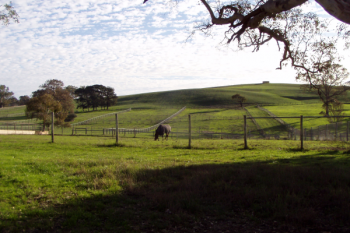What Is Agistment?

Agistment is probably not a word that many city folk are familiar with, but those who live and work on the land know that it has to do with feeding animals, be they horses, cattle or sheep. Animals eat grass and if there is a dry time and the grass on your property runs out, what do you do? You can hand feed by buying hay and bagged feed or you can have your stock agisted on another property that has grass to spare.
This can also happen not so much due to running out of grass, but, for instance, if you want your prize mare to go into foal from a certain stallion that lives on another property. Since the mare will need to go and stay on that property and while she is there she will eat grass, you can pay agistment fees to help cover the cost of what she eats. And of course, the same can apply to cattle or other grass-eating animals.
Another reason to use this form of feeding animals is if you want to run more stock than your property can handle. It sometimes pays to have them agisted on another property, so long as the prices are good enough to cover the cost and give you a profit when you sell them. In fact, some landholders come to an arrangement such as taking care of the fencing or some other kind of work, instead of paying cash.
Horse breeders have to take particular care where their horses go, though. Horses are not like cattle and need the right kind of fencing to keep them safe, especially if they are stud stock. Barbed wire fencing is usually frowned on by owners of prize horses as it is too easy for them to suffer an injury from the barbs. Horses have a bad habit of leaning their heads over a fence, and if they get startled the sudden jerk could easily injure them.
You will see that nearly all horse studs have railing fences for this very reason. It helps to keep the horses safe and provides a more solid barrier that they are not so likely to try and jump over or through if they become startled.
Horses are easily startled and likely to kick or jump as they gallop away. Flight is their natural reaction to danger, whether that is real or imagined. So the fencing has to be especially solid and secure, especially when the horses are stud stock.
